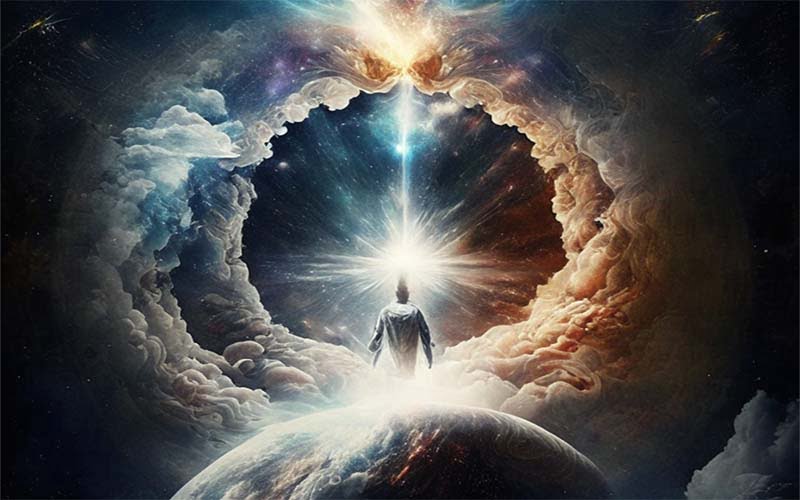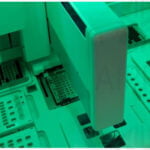
The question proof of existence of God, is a topic of contemplation and debate for centuries. People have sought evidence and proof to validate their beliefs or refute the notion of a higher power. While the existence of God cannot be definitively proven or disproven through scientific methods, there are compelling arguments and philosophical perspectives that shed light on this profound question.
The cosmological argument posits that the existence of the universe necessitates the existence of a first cause or a prime mover. It suggests that everything that exists has a cause, and this causal chain cannot extend infinitely. Therefore, there must be a necessary being that initiated the existence of the universe. Proponents of this argument view God as the ultimate cause that set everything into motion.
The teleological argument, also known as the argument from design, asserts that the intricacies and order found in the universe imply the existence of an intelligent creator. It suggests that the complexity and fine-tuning of natural phenomena, such as the laws of physics and the biological structures, point towards a purposeful design. This argument presents the existence of God as the best explanation for the apparent design observed in the world.
The moral argument centers around the concept of objective moral values and duties. It posits that the existence of moral standards and the human capacity to discern right from wrong necessitate a moral lawgiver. Without a transcendent source of morality, ethical principles would be subjective and varied. Proponents of this argument argue that God provides the foundation for objective moral values.
The ontological argument takes a different approach, focusing on the concept of God as a necessary being. It suggests that the very definition of God as a perfect being implies existence. According to this argument, if we can conceive of a being that possesses all perfections, including existence, then that being must exist. Critics of this argument raise objections regarding the leap from conceptual existence to actual existence.
Many individuals claim to have had personal experiences that they interpret as encounters with the divine. Also they explain their experience as a proof of existence of God. These experiences range from feelings of awe and transcendence to profound moments of connection or guidance. While subjective in nature and not verifiable by empirical means, these experiences provide a sense of evidence for those who have undergone them.
Throughout history, there have been accounts of events that are considered miraculous and attributed to the intervention of a higher power. These events often defy natural explanations and challenge the boundaries of what is considered possible. While skepticism surrounds these claims, they serve as a basis for belief in the existence of God for many people.
Faith plays a significant role in the belief in God’s existence. It is an acknowledgment of the limitations of human understanding and the willingness to trust in something beyond empirical evidence. Faith provides a framework for individuals to interpret their experiences, reconcile uncertainties, and find meaning in their lives.
Counterarguments and Skepticism
One of the most significant challenges in proof of existence of God is the problem of evil. It questions how the presence of suffering and injustice can coexist with the existence of an all-powerful and benevolent God. Various philosophical and theological responses have been proposed, including the notion of free will and the idea that suffering serves a greater purpose not comprehensible to humans.
Scientific explanations offer alternative perspectives on the origins and workings of the universe. From the Big Bang theory to evolutionary biology, these explanations provide naturalistic accounts that do not require the existence of a divine being. While science cannot disprove the existence of God, it offers alternative narratives that challenge traditional religious beliefs.
The proof of the existence of God remains an elusive concept that transcends scientific inquiry. Philosophical arguments, experiential evidence, and the role of faith all contribute to the beliefs and convictions surrounding this topic. While no irrefutable evidence can satisfy everyone, exploring these ideas can foster a deeper understanding of our relationship with the divine and the complexities of human existence.
A1: While science provides naturalistic explanations for phenomena, it does not offer direct empirical evidence for or against the existence of God. The question of God’s existence lies beyond the realm of scientific inquiry.
A2: Personal experiences can provide subjective evidence or proof for individuals who interpret them as encounters with the divine God. However, they are not verifiable or replicable, making them less persuasive as objective proof.
A3: Faith allows individuals to transcend the limitations of empirical evidence and find meaning in their relationship with the divine. It provides a framework for interpreting personal experiences and understanding the mysteries of existence.
A4: Skeptics often question the lack of empirical evidence and propose naturalistic explanations for phenomena traditionally attributed to divine intervention. They highlight the limitations of philosophical arguments and challenge religious beliefs.
A5: The problem of evil raises questions about the coexistence of suffering and a benevolent God. While it presents a challenge, various responses have been proposed, emphasizing the complexities of human existence and the limitations of human understanding.
In conclusion, the existence of God remains a profound and deeply personal question. While no definitive proof can satisfy everyone, exploring philosophical arguments, personal experiences, and the role of faith can shed light on this timeless topic. The pursuit of understanding and meaning is a journey that continues to captivate human curiosity and shape our perspectives on the world around us.
Recommended other topics: Moral Support to Overcome Challenges










© InfoDoot. All Rights Reserved.